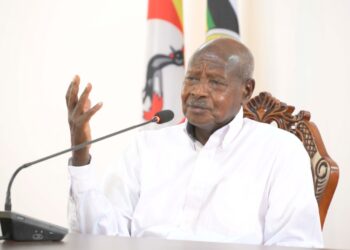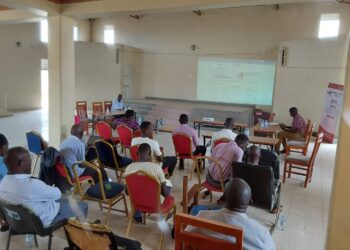There is always a debate in Uganda and perhaps in other parts of the world about formal education and entrepreneurship. The argument posits that formal education incapacitates entrepreneurship.
The argument is that people who don’t go through formal education set up businesses and become very successful. A few examples are always cited pointing at who owns which high-rise building. American tech entrepreneurs who abandoned their formal education programs to set up companies that became unicorns are also always mentioned.
It is easy to get caught up on the side of this argument until you ask how many of these billionaires actually exist. The argument is always devoid of numbers and percentages. Of the uneducated people in Uganda, how many actually become billionaires? How many are able to survive in this treacherous world of business? Of the buses that ferry people who dropped out of primary in schools to Kampala or any urban areas, how many make it in the city? How many return to abject poverty? How many such entrepreneurs are not one health emergency away from abject poverty?
Having said that, what makes some of the people who only attained informal education especially as traders make it in life than those who attained formal education? I think there is not a single answer to this question because I think people who are to succeed will always do regardless of their formal or informal education. There is always something beyond education—formal or informal; the X-factor or what some call destiny.
But I think one of the main reasons why people who didn’t go far with their formal education succeed is time — the most important element that makes most entrepreneurs successful. People who don’t go into formal education start handling money at a very early age. By around age 10 or 15, they have started handling money, they are learning more about money and the opportunities that money creates than those in school.
By age 30, those with informal education have had 15-20 years of working experience handling money. Those with formal education at the same age, are just starting out. They are underemployed and are basically where their colleagues with informal education were 15-20 years ago.
Most people with formal education at age 30 haven’t done much. They are just getting noticed at work and because they don’t have any experience with money, whatever they earn goes to consumption. A high end rented apartment, a Subaru on salary loan, and the latest iPhone and thinking or going back for a masters degree so they could land the corner office. The guy with informal education, at this time they are investing in assets that will be worth a lot of money in 10-15 years.
At 40, the guy with a formal education is now starting to invest, buying their first plot of land and dreaming of entering an incomplete house on a 50×100 feet plot as the ultimate dream. At 45, he starts investing for products that will mature in 5-15 years. Meanwhile the guy with the informal education is now cashing in on his maturing investments and getting more investments.
To make money, unless you are an outlier, takes time. To invest Shs1m and be able to get Shs10m out of it, requires time. That is why majority of guys with formal education once they withdraw their NSSF money, it is wasted within two years. They have no experience handling money. One investment failure is the end of the life. By this time, the other guys have failed, failed and failed and somewhat got it right.
The issue, therefore, is not formal education rather time when one starts investing. If you look back at some of your formal education friends who were trading and investing while at university, there are most likely far ahead today in terms of investments because they have had much more time learning about money and investing it. They also know how to handle failure and have the experience to dust themselves up and move again.
And that is the lesson people with formal education should learn from those with informal education. To start learning about money early. Ugandan university students have a lot of time. Many only have classes in the evening, weekend or even a few hours a day. The rest of the time is spent indulging in mostly entertainment and such other things. How can they use this time to learn more about money by doing some businesses?
In hostels around universities, people with informal education turn up to plait students’ hair, do laundry and selling them used spaghetti tops. What stops a university student from going to Owino buy clothes and sell them to fellow students? That way they can learn about money early in life.
The writer is a communication and visibility consultant. djjuuko@gmail.com
Do you have a story in your community or an opinion to share with us: Email us at editorial@watchdoguganda.com













